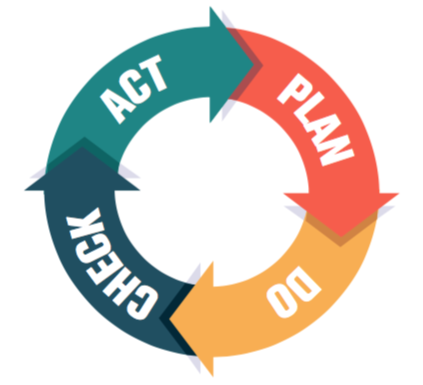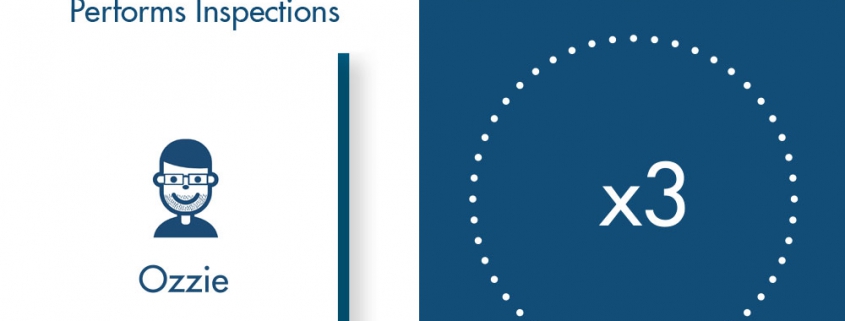Before the trees are cleared, the foundation is poured, and any siding or beams are put into place, a surveyor goes out and surveys the land before any home or neighborhoods are constructed. What is he looking for? He’s checking the drainage system, the floodplains, the quality and density of the soil, how to position the road systems, how to angle the homes, which lots can they fit, how many can go in one location, and much more.
But even before all of this, the right tools must be in place in order to complete the overall mission: build a new neighborhood and gain tenants and owners.
As with building a neighborhood, you need the right equipment to perform at your best and to satisfy both your needs and the customer’s. You do this by implementing a strategy. And in today’s world, that strategy is now digital and wireless by means of software implementation. Or as we call it in the corporate and professional arena: Enterprise Resource Planning (ERP). I’m here to guide you on how to go about selecting the best ERP software. There are many out there, but not everyone will do what you need and help you reach your goals.
Read Also: What is an ERP Software?
Step 1: Narrow Your ERP Needs
We must hone in on what your business truly desires to achieve with an ERP system at your disposal. A few key points to get you started:
Line of business
Does your company specialize in a specific field like manufacturing, or do you provide general goods? If your activity is focused on one industry, you should know some ERP vendors provide generic features applicable to every line of business when others may specialize in your industry. Specialists are not only more familiar with your processes, they also probably developed features to meet the specific needs of your industry. For example, ABIS ERP integrates your Bills of Material to define the relationship between a manufactured or processed item and all of its component materials or tasks required to assemble it. It has the ability to maintain unlimited levels of breakdown and works equally well for manufacturing and process industries.
Size
Are you a small, medium, or large organization? Keep in mind, this also includes what you foresee or are striving to achieve with your company. Depending on the size of your business, ERPs will offer different incentives and customizable imprints that you may or may not require. ABIS focuses its attention on small and medium business as this allows for us to really dive in and establish a personal repertoire with our client. Our software is tailored for companies of this size while other larger ERP enterprises focus more on large businesses and their ERP systems would not be comparable or ideal for a smaller or medium-sized business.
Revenue
How much does your business make each year in Gross and Net income? This ties directly into the size of your business. Small companies will not need all of the applications that a highly comprehensible ERP system would provide to a large corporation, and so it is important to know which category you would fit in so an ERP system can be customized to your needs.
Step 2: Do the Research on ERP Systems
Every ERP system is different and each one can be tailored specifically to your needs. Some might be more beneficial to your short-term goals, while others may suit your long-term goals. It is crucial that you know your goal, where you currently stand, and where you want to be. All of these are crucial to your enhancement of your business. This step is all about delving into the nitty-gritty of the ERP system you’re looking at. What kind is it? What style? What format? Who is it more geared for? How long has it been around? And what are the features it includes within its package?
Organic vs. Hybrid
This is very important to note. There are several ERP systems available to you in the market, but not every system is equal. A hybrid ERP system is one that derives its applications and sources from different acting bodies and joins them together to form a new product. This means there are multiple parties working on, developing, and offering a finished product that is merely a section or compartment of the ERP system being offered. Such as adding modules to integrate every function a business may need. This makes for complicated access for user help and tech support.
We at ABIS believe everything from start to finish should be designed and implemented by the same team. This allows for us to be more reactive when an obstacle arises and to correct it more efficiently. The best ERP systems are those that are what we call Organic. This means that every aspect and part of the system is created, monitored, and supported in house: the same organization or business. This gives you the peace of mind that you’ll have supreme customer support when you need it, and know that each category of the ERP system you use was created by specialists who have been in the business for many years and have the expertise that you need to feel confident.
Read Also: Out of the box, Customizable, or Configurable ERP: which one is right for you?
Pure player vs. Generalist
The important thing to pay attention to here is the difference between the two. A generalist is a company or system that pumps out large quantities of products. They do not specialize or sell many ERP systems. Whereas with a pure player, they are invested in you and your success is their primary mission.
Age
As with anything, how long something has been around giving testament to their quality, their customer service, and shows their track record. Before making a selection on an ERP system, see how long the company providing the system has been around. What are their core beliefs and mission statement? Have they improved over the years? Here at ABIS, our mission is to first provide you with a top-notch ERP system, and then help you improve your business. You can take heart in knowing that we aren’t going anywhere as we have been in the business of helping businesses launch into the next level for the last 30 years.
And lastly, what are the features?
Features
List of features, Customizable, Training, Customer Support. Some companies are after the quick sale or take the broad stroke approach. But with ABIS, you get what you pay for.
We believe that the power should always be in the hands of the client, not the software developer. With ABIS as your guide, you’ll receive fully customizable software. We do not sell packages with features you won’t need. We discuss your needs and customize your solution based upon them. We also know that not every business knows the best practices or methods to use with an ERP system, and that’s why our system includes in-depth training along with our software. ABIS sends a specialist to your location to train, instruct, and guide your users. We also provide print and online documentation for later referral.
One of the accomplishments we pride ourselves on here at ABIS is our Customer Service. We consider our client-partners as just that: partners. When you join ABIS, you join a family. Instead of outsourcing our product, we develop the software in-house. This enables us to act proactively when problems may arise and correct them extremely quickly.
Discover ABIS Software Products: ABIS Software Products
Step 3: Evaluate your ERP Options
Rank each provider based on what they have offered, their incentives, their pricing, and long-term support. Pricing is arbitrary to an extent as each ERP software provider will have varying price ranges depending on what is included in the package. The key is finding a provider who works with you, customizes your software package, and will be with you every step of the way as ABIS promises to do. To assist you further, the following are a list of options you should consider when making your selection:
Software
What does the package include, promise to do, and will it aid you in accomplishing your goals? If you are a manufacturer, the solutions to look for in priority are Order Entry, Manufacturing Forecasting, Purchasing/Receiving, Inventory Management, Production Scheduling, Work Orders, Accounting, Supply Chain Management, Field Service Management and Warehouse Management System.
Implementation
Does the provider offer implantation or assist you in understanding the software? We wrote a complete article about ERP Implementation here.
Upgrades
Are updates and upgrades available to enhance your software package as technology and methods change and improve? You should inquire about the upgrade policy of the provider you will choose. A vast majority of providers chose to enforce an upgrade every decade with extensive costs for your business. This is the type of hidden costs you want to know beforehand since it can impact your business in the future. ABIS updates its software a few times a month for free and will never charge for an upgrade. Our updates also include the latest best-practices from our client-partners so each individual is always up-to-date on the best processes of the industry.
Training
Are you left to fend for yourself when you purchase your new ERP system or does the provider stand by your side through the entire process and after to ensure your success?
Extras
Any extra incentives such as a CRM package, or Accounting package. (These are not normally included and must be added with most Manufacturing ERP systems).
Return on Investment (ROI)
Does your ROI outweigh your Cost of Investment (COI)? With any company seeking growth, it is crucial to keep your numbers in the green. But keep in mind; sometimes you may dip below the red for a period of time during this change. This is normal and nothing to fear.
Some features are not always included with every ERP system package. But ABIS believes you need the proper tools to be successful. That is why the price will be the same no matter how many modules you choose. CRM, Distribution, Supply Chain Management (SCM), Manufacturing and Human Resources Management (MHRM) are all in the palm of your hand, so you don’t have to choose one over another because of a limited budget. You pick what you need, and what is necessary to your business.
Read Also: How to Calculate the ROI of your Manufacturing ERP
Step 4: Anticipate the ERP Implementation
The moment you have been waiting for, implementation of your new Manufacturing ERP software and the launch of your new business plan and dreams. The method and format for each ERP system vary from company to company. At ABIS, we keep it short and simple. The following is our short, yet concise method of implantation to get you rolling:
1. Preparation & Planning
Putting together the plan and all participating parties.
2. Analysis
Establish system needs and pre-system requirements.
3. Development & Installation
Hardware and software installation setup and configuration.
4.Data Deployment
Gathering of data needed for migration.
5. Configuration
System Configured around Development & Installation requirements and Analysis.
6. Training
All parties involved go through the necessary training to ensure all functions, methods, and procedures are understood.
7. Testing
Test-proofing and corrections made if needed.
8. Go live
The finalized stage before launching the new ERP system.
Conclusion
The selection of an ERP Software is a long and daunting process that usually takes a few months but it is critical to make sure you take the right decision since it will impact your business for the next few years and sometimes decades.
The next important step is to determine which areas of your business you want to see impacted by the ERP system. You need to know which modules your ERP provider is offering and how they will seamlessly integrate your business. The third white paper will detail which modules you should be looking for.














